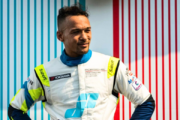NAIROBI, Kenya (AP) — Ethiopian authorities have arrested and detained some 70 aid-delivering truck drivers contracted to the United Nations and other groups in the past week, the U.N. said Wednesday, beginning when the government declared a state of emergency amid the country’s escalating war and growing famine.
It is the government’s latest slap at the world body after the recent expulsion of seven U.N. staffers and the detention of at least 16 local employees as tensions continue over what the U.N. has called a “de facto humanitarian blockade” on Ethiopia’s Tigray region.
Wednesday’s statement said the U.N. is seeking the reasons for the drivers’ arrests that occurred starting Nov. 3 in the city of Semera, the gateway for aid convoys struggling to reach Tigray. Government spokesman Legesse Tulu did not respond to questions.
On Tuesday, the U.N. said the 16 local employees had been detained in recent days in Ethiopia’s capital, Addis Ababa. All are ethnic Tigrayans, who witnesses say have been swept up by the thousands since the state of emergency was declared in response to reports that Tigray forces who have been fighting Ethiopian forces were approaching the capital.
Government spokesman Legesse told The Associated Press the 16 U.N. staffers were detained because of “participation in terror” unrelated to their work, without details. The government says it is detaining people suspected of supporting the Tigray forces.
U.N. spokesman Stephane Dujarric on Wednesday said at least nine of the staffers were currently held, and the U.N. had not received “any official explanation” for the detentions.
The new U.N. statement said the dozens of drivers detained are of “different ethnicities,” but they include Tigrayans.
The arrests are a further challenge to efforts to deliver humanitarian aid to millions of people in Tigray, which has not received badly needed aid supplies including food, medicines and fuel since the Ethiopian military began hitting the Tigray capital with airstrikes on Oct. 18. Even before then, just 15% of the needed supply-laden trucks had entered Tigray since mid-July, the U.N. says.
Some of the detentions of U.N. employees occurred even as U.N. humanitarian chief Martin Griffiths was in Ethiopia meeting Prime Minister Abiy Ahmed and other officials to press for more access. The U.N. called those talks “constructive.”
“It is estimated that 80% of essential medication is no longer available” in the region, the U.N. humanitarian agency said last week. Ethiopia’s government is wary that aid intended for civilians may be diverted to support the Tigray forces, and it has accused humanitarian groups of arming the fighters and of falsely inflating the scale of the crisis, without giving evidence.
Griffiths in a statement this week said the women he met while visiting Tigray “were desperately focused on daily survival.”
The war in Africa’s second most populous country has killed thousands of people and displaced millions. Now the Tigray forces who dominated the national government for 27 years before a political falling-out with Abiy, the 2019 Nobel Peace Prize winner, are approaching Ethiopia’s capital.
Urgent diplomatic efforts by the African Union and United States for an immediate cease-fire and talks reported a small window of opportunity this week, but Tigray forces spokesman Getachew Reda in a tweet on Wednesday asserted that “most ‘peace initiatives’ are mainly about saving (Ethiopia’s prime minister) … Efforts that fail to address our conditions and the tendency to conflate humanitarian issues with political ones are doomed to fail!”
___
Edith M. Lederer at the United Nations contributed.
Copyright © 2024 The Associated Press. All rights reserved. This material may not be published, broadcast, written or redistributed.







